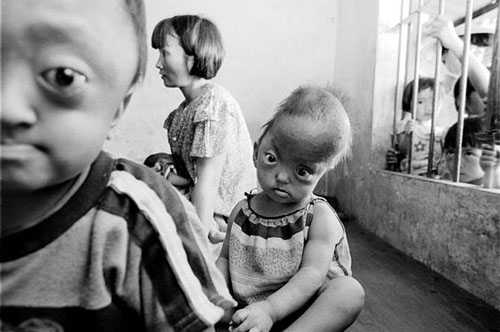The Treaty of Versailles included some provisions that banned Germany from either manufacturing or importing chemical weapons. Similar treaties banned the First Austrian Republic, the Kingdom of Bulgaria, and the Kingdom of Hungary from chemical weapons, all belonging to the losing side, the Central powers. Russian bolsheviks and Britain continued the use of chemical weapons in the Russian Civil War and possibly in the Middle East in 1920.
Three years after World War I, the Allies wanted to reaffirm the Treaty of Versailles, and in 1922 the United States introduced the treaty on the Use of Submarines and Noxious Gases in Warfare, known as the Washington Treaty.[5] The four of the war victors, United States, United Kingdom, Italy and Japan, gave consent for ratification but it failed to enter into force as the French Third Republic objected to the submarine provisions of the treaty and thus the treaty failed.[5]
At the 1925 Geneva Conference for the Supervision of the International Traffic in Arms the French suggested a protocol for non-use of poisonous gases. The Second Polish Republic suggested the addition of bacteriological weapons. It was signed on 17 June.[6]But the US still used it (agent orange) in Vietnam war that produced maldeveloped human being:
 I think it is banned not because of the kill but of the consequential effects.
I think it is banned not because of the kill but of the consequential effects.